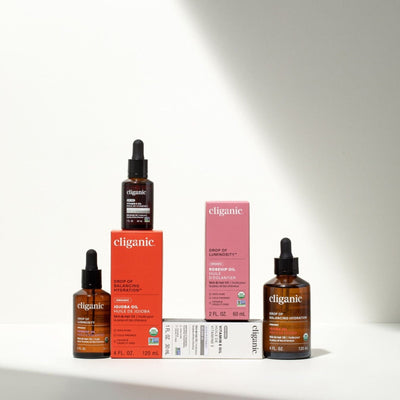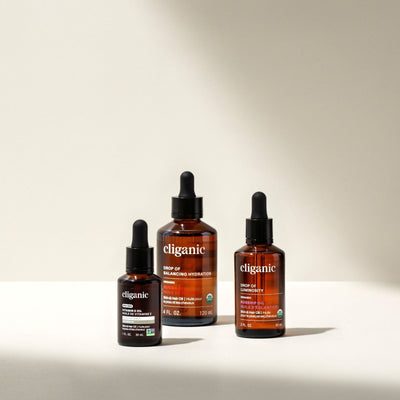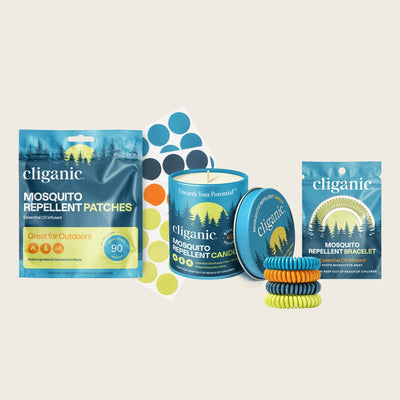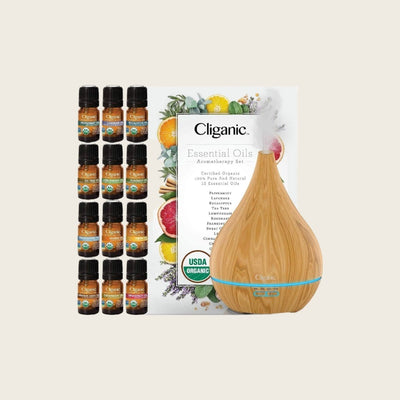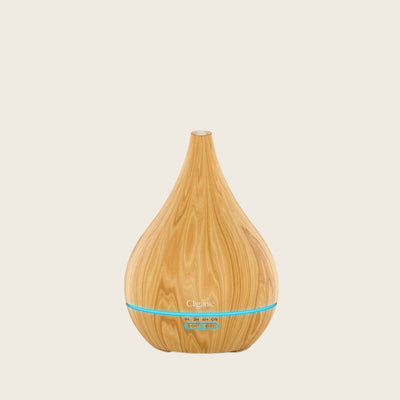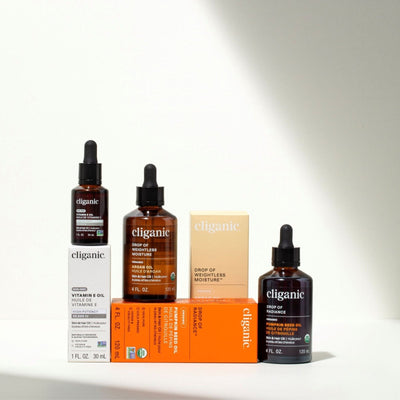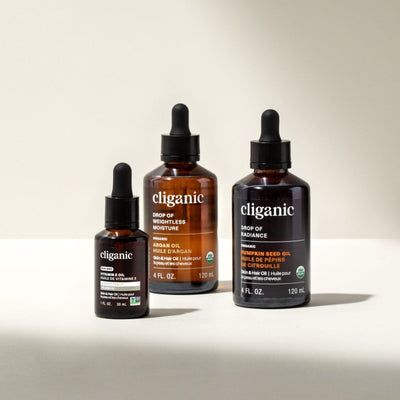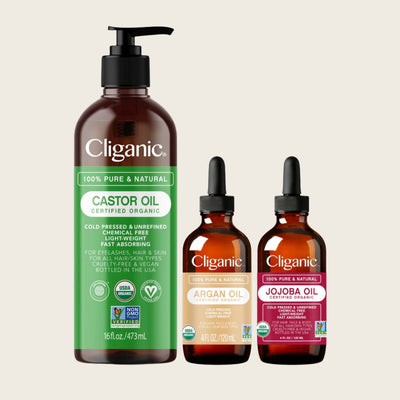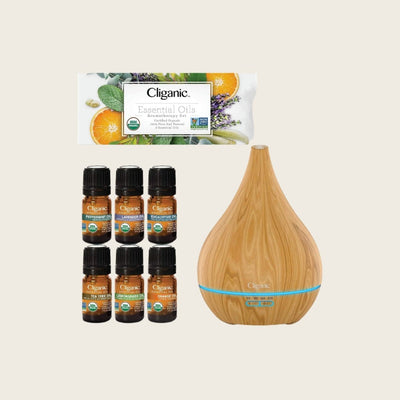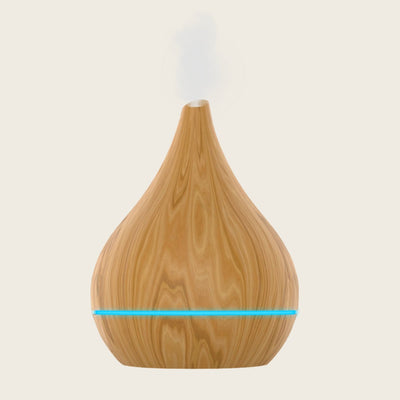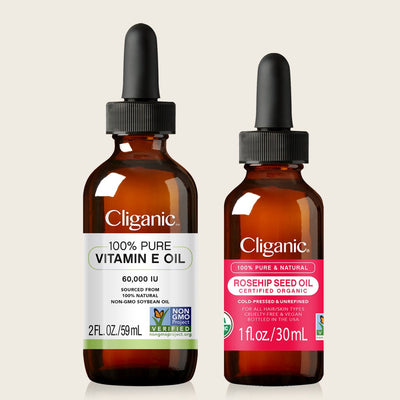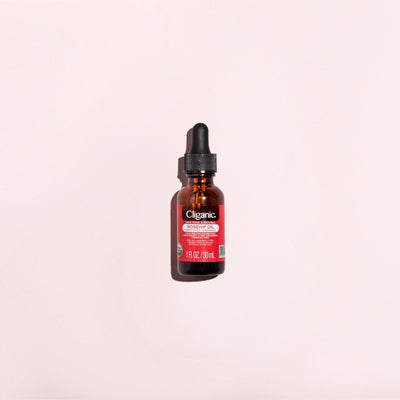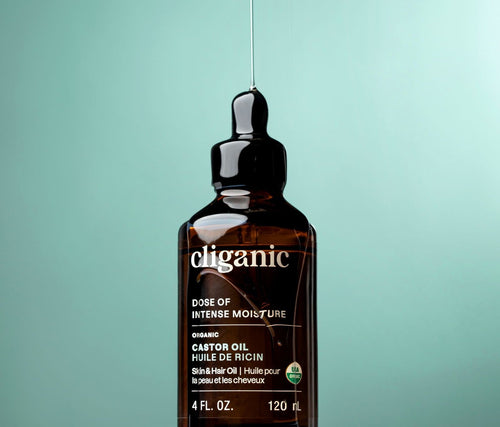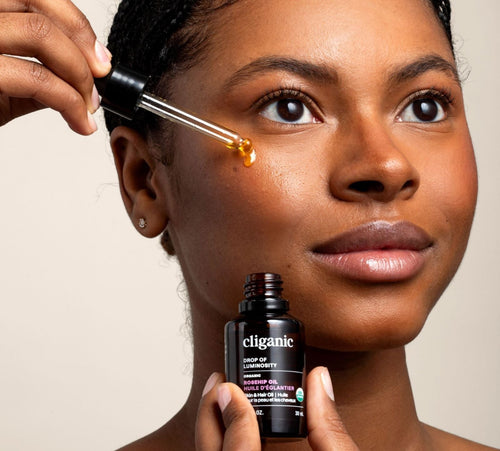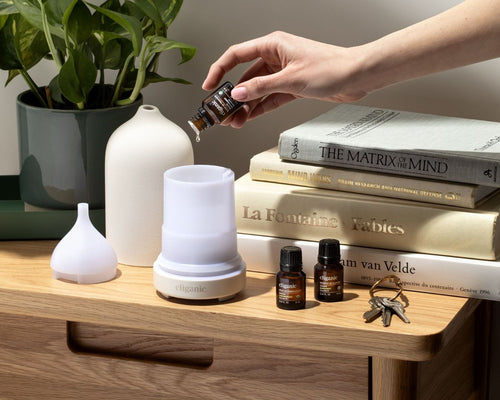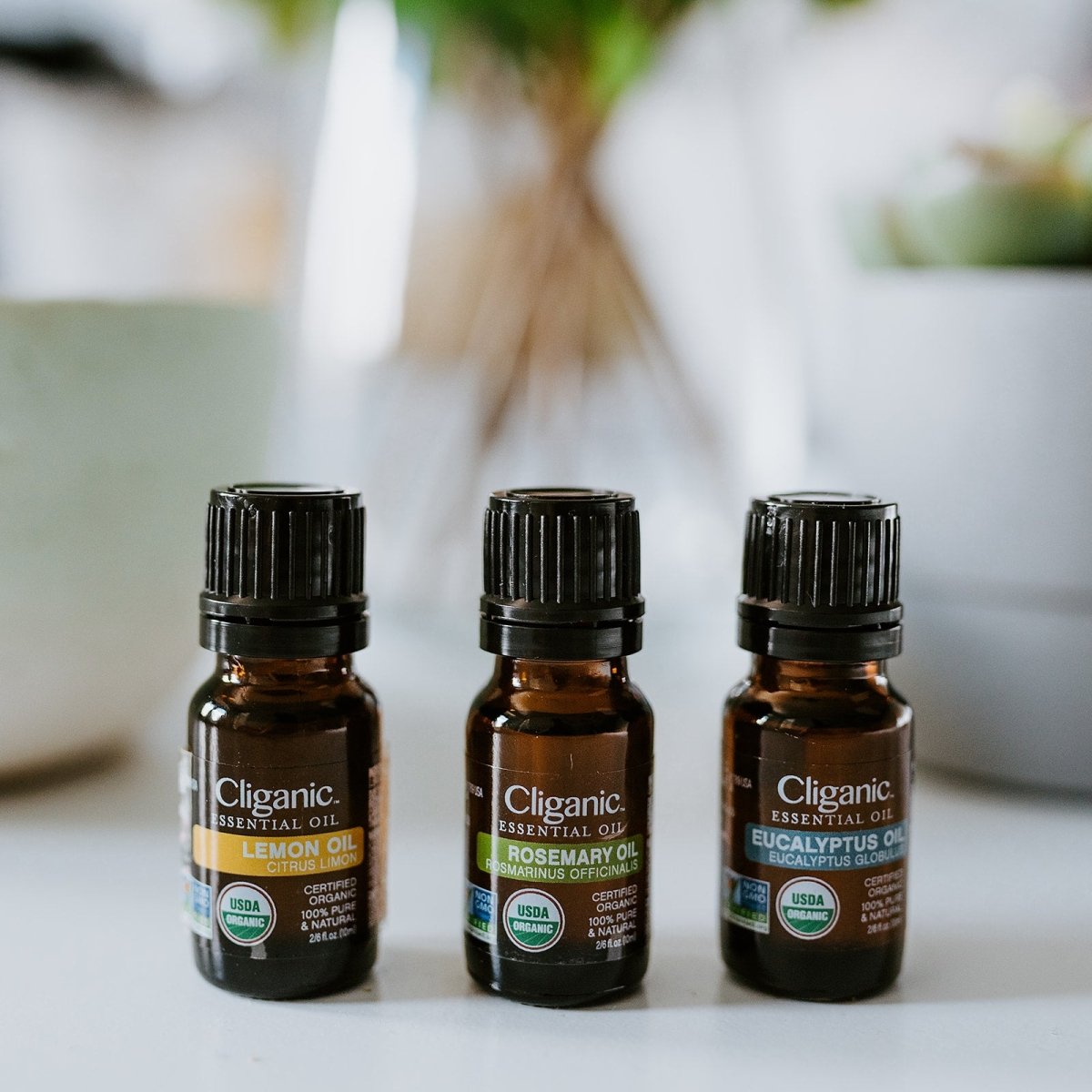
Eucalyptus Oil - Uses and Benefits
Eucalyptus oil benefits focus on calm breathing. Eucalyptus oil uses include everything from cleaning to relaxing the mind. This article covers the following topics:
- Essential oils overview
- The four main types of eucalyptus essential oil and fragrance profile
- Eucalyptus essential oil benefits
- How to use eucalyptus oil for breathing, cleaning, hair, and skin
- Safety and precautions
- Why you should choose organic essential oils
- Why you should choose Cliganic essential oils
- Where to buy eucalyptus oil.
Essential Oils Overview
Essential oils are concentrated versions of the natural oils found in plants and trees. The oils come from the leaves, fruits, bark, flowers, seeds, roots, or resins. Most essential oils are extracted by steam distillation. However, essential oils made from citrus fruits use a process called cold pressing.
Essential oils have been used in various cultures for thousands of years. The ancient Egyptians incorporated essential oils throughout their daily lives. Essential oils are a central element of Indian Ayurvedic medicine—the oldest system of medicine in the world. Essential oils were also used in ancient Greece, Rome, and China.
Today, essential oils are still valued for their aromatic and cosmetic qualities. Aromatherapists use essential oils to promote well-being. Many people use essential oils for hair and skin care, and to clean their homes.
What Is Eucalyptus Oil?
There are more than 600 species of eucalyptus trees—most of which are native to Australia. Although all versions of the oil are steam-distilled from the leaves of the tree, the uses and benefits vary based on which tree is used.
Four main types of eucalyptus essential oils are commonly available. Each comes from a different tree and has a different chemical component.
- Eucalyptus globulus essential oil is the most common. Extracted from the leaves of the blue gum tree, this is the “traditional” or “classic” version of the oil. It contains 70% to 85% eucalyptol (also known as 1,8-cineole), which helps with respiratory health and pain relief. This is the version of the oil used by Cliganic.
- Eucalyptus radiata essential oil is derived from the leaves of the narrow-leaved peppermint tree. Containing 60% to 70% eucalyptol, this oil has a milder aroma than eucalyptus globulus and is preferred for use on children.
- Lemon eucalyptus essential oil (Corymbia citrodora) comes from the leaves of the lemon-scented gum tree. Although it contains some eucalyptol, its primary component is citronellal.
- Eucalyptus dives essential oil is derived from the leaves of the broad-leaved peppermint tree. Its primarily chemical component is 40% to 55% piperitone. This oil is frequently used for calm breathing.
In general, eucalyptus essential oil has a strong medicinal aroma. The scent has been described as earthy, woody, herbaceous, and camphorous. Because of the strong scent and chemical make-up, be careful when using the oil with young children. See the Safety and Precautions section for more information.

What Is Eucalyptus Oil Good For?
When people ask “What is eucalyptus essential oil good for?” the answer usually focuses on the well-being benefits of eucalyptus oil—helping with calming and relaxing breathing. However, the oil has many more benefits.
So, what does eucalyptus oil do? It can:
- hydrate the scalp
- clean everything from floors to bathroom grout
- relieve dry skin
What Is Eucalyptus Oil Used For?
This section on eucalyptus essential oil uses provides numerous tips and techniques on how to use eucalyptus essential oil, including making essential oil blends with eucalyptus. Two highlighted blends include lavender and eucalyptus oil and eucalyptus and peppermint oil.
When creating an essential oil blend, follow these guidelines.
- Place the oils in a dark bottle (amber-colored is best) to protect them from light. A two-ounce bottle should work for most recipes.
- Label the bottle with the ingredients, date, and intended use.
- Store at room temperature or in the refrigerator away from light and heat.
- Replace the cap immediately after use as oxygen can affect an oil’s composition.
- Shake well before each use to combine oils.
Eucalyptus Oil for Breathing
There are three main ways to calm breathing with eucalyptus—steam inhalation, an essential oil spray, or an essential oil diffuser.
To calm breathing with steam inhalation, fill a bowl with steaming hot water, add 1 to 2 drops of eucalyptus essential oil, cover your head with a towel, and breathe in the vapors for no more than two minutes.
Breathe Easier Spray Mix
Add oils to the cotton part of an essential oil inhaler and then breathe in.
- 5 drops eucalyptus
- 5 drops tea tree
Diffusing eucalyptus oil is another way to calm breathing. Consider using a eucalyptus oil diffuser and the blends below during the winter months. Follow the manufacturer’s instructions for diffuser use.
Eucalyptus and Peppermint Oil Diffuser Blend
- 7 drops eucalyptus
- 6 drops peppermint
- 5 drops lemon
Breathing Diffuser Blend
- 2 drops peppermint
- 1 drop eucalyptus
- 1 drop lemon
- 1 drop rosemary
Eucalyptus Oil for Chest
Use the recipes below and massage onto the chest.
Eucalyptus Chest Rub
- ½ ounce jojoba oil
- 3 drops eucalyptus
Eucalyptus and Peppermint Oil Chest Rub
- ½ cup jojoba oil
- 20 drops eucalyptus
- 15 drops peppermint
Head Massage Oil
Combine ingredients and shake well before each use. Then apply to the back of your neck, forehead, and feet.
- 1 ounce jojoba oil
- 4 drops lavender
- 2 drops eucalyptus
- 2 drops frankincense
- 1 drop peppermint
When combined with lavender, you’ll be ready to drift off to sleep with a clear head.
Lavender and Eucalyptus Oil Bath Soak
Combine ingredients and then pour under running water to dissolve the salt and disperse the oil.
- 1 cup Epsom salts
- 10 drops eucalyptus
- 5 to 6 drops lavender
Eucalyptus Massage Oil
Eucalyptus massage oil recipes often focus on relaxing joints and muscles. For the recipes below, combine the oils and then shake before each use.
Muscle Massage Oil
- 1 ounce jojoba oil
- 14 drops eucalyptus
- 12 drops lavender
- 7 drops peppermint
Body Massage Oil
- 4 teaspoons jojoba oil
- 4 drops eucalyptus
- 4 drops rosemary
- 2 drops ginger
Joint Massage Oil
- 3 to 5 teaspoons jojoba or moringa oil
- 8 to 10 drops eucalyptus
- 8 to 10 drops peppermint
Eucalyptus Essential Oil For Cleaning
Eucalyptus is used in numerous natural cleaning recipes. Below is a collection of DIY essential oil recipes for cleaning your home.
Bathroom Grout Cleaner
Mix ingredients in a wide-mouth container. If needed, add more vinegar or soap for a smoother consistency.
- 1 cup baking soda
- 1 tablespoon cornstarch
- 1 tablespoon white vinegar
- 3 tablespoons castile soap
- 10 drops tea tree oil
- 8 drops eucalyptus
- 8 drops gingergrass oil
Floor Cleaner
Put ingredients in a bucket and mix well before mopping the floor. Limit use to floors that can be safely cleaned with water.
- 1 gallon water
- 2 cups white vinegar
- 10 drops eucalyptus
- 10 drops peppermint oil
- 10 drops white pine oil
Lemon Eucalyptus Essential Oil All-Purpose Cleaning Spray
Combine ingredients in a 16-ounce spray bottle and then shake well.
- 1 ¾ cups water
- ¼ cup white vinegar
- 15 drops eucalyptus
- 15 drops lemon
All-Purpose Cleaning Spray
Combine ingredients in a 16-ounce spray bottle and then shake well.
- 7 ounces water
- 7 ounces 3% hydrogen peroxide
- 1 tablespoon unscented castile soap
- 10 drops eucalyptus
- 10 drops tea tree
Eucalyptus Essential Oil For Hair
Hair Hot Oil Treatment
Warm coconut oil and castor oil in a small pan until just hot enough to touch. Don’t overheat! Remove from heat and then add the eucalyptus and stir. Transfer mixture to a bowl and massage into scalp when warm enough to handle. Leave on for 15 to 30 minutes and rinse thoroughly.
- 1 tablespoon coconut oil
- 1 tablespoon castor oil
- 6 drops eucalyptus
Eucalyptus and Peppermint Oil Hydrating Shampoo
Combine ingredients in a jar or bottle. (An old shampoo bottle would work.) Close securely and shake thoroughly before each use.
- ¼ cup coconut milk
- ¼ cup liquid castile soap (unscented)
- ½ teaspoon olive or almond oil
- 10 drops peppermint
- 10 drops eucalyptus
Scalp Hydration
Combine ingredients and mix thoroughly. Massage into clean hair and leave on for a few minutes before rinsing thoroughly.
- 1 cup water
- ½ to 1 tablespoon apple cider vinegar
- 6 drops eucalyptus
Eucalyptus Oil for Skin
If you’re wondering “Is eucalyptus oil good for skin,” the short answer is that it isn’t a “go to” oil for skin care. However, eucalyptus oil benefits for skin include relief from dry skin (eucalyptus dives oil).
Dry Skin Relief
Combine ingredients, shake well, and then apply where needed.
- 1 tablespoon jojoba oil
- 3 drops eucalyptus
Exfoliating Sugar Scrub
Combine ingredients, mix well, and then put the finished mixture in a glass jar with a tight-fitting lid. When using, mix thoroughly before using and apply to face, hands, or feet. Massage gently for several minutes and rinse thoroughly.
- ½ cup fine granulated sugar
- ¼ cup coconut oil
- 8 drops eucalyptus
Eucalyptus Essential Oil Safety and Precautions
General safety guidelines for essential oils are listed below, followed by specific precautions for eucalyptus.
- Don’t use undiluted essential oils on your skin. Dilute them with a carrier oil first. (Cliganic’s 100% organic cold pressed jojoba oil is an ideal choice.) Perform a patch test to check for allergic reactions.
- Don’t use an essential oil diffuser for longer than 20 to 30 minutes.
- Don’t use essential oils near eyes or mucous membranes
- Store essential oils out of reach from children and pets.
- Do not ingest essential oils.
- Wash your hands after using essential oils.
Is Eucalyptus Oil Safe?
When used properly, eucalyptus essential oil is safe. However, experts don’t recommend using eucalyptus oil on faces of children younger than 10 years old as it can cause breathing difficulties and affect the central nervous system. Therefore, we don’t recommend eucalyptus oil for baby. Also, inhaling eucalyptus oil side effects might include allergic reactions or the onset of an asthma attack.
The oil should be used sparingly (if at all) with young children and at dilution rates of 0.5% for children younger than 3 years old and 1% for children older than 3 years old. Using the milder eucalyptus radiata essential oil with children is recommended.
Is Eucalyptus Oil Poisonous?
A related question that people ask is “Can eucalyptus oil be ingested?” The answer is that the oil can be toxic if taken orally, especially in undiluted form. Signs of eucalyptus poisoning include dizziness, feelings of suffocation, nausea, stomach pain and burning, vomiting, diarrhea, and muscle weakness.
Why Choose Certified Organic Eucalyptus Oil?
Cliganic’s eucalyptus essential oil is certified USDA organic, which means 100% of ingredients are certified organic and free of synthetic additives (including pesticides, dyes, and chemical fertilizers). In addition, certified organic products are processed without using genetic engineering, industrial solvents, or irradiation. By choosing a certified organic product, you’ll know you’re getting pure eucalyptus oil that was produced using environmentally-friendly methods.
Why Choose Cliganic Eucalyptus Essential Oil?
We believe that Cliganic has the best oils on the market, and we think you’ll agree. Cliganic’s pure essential oils stand apart because of our commitment to purity, organic materials, and quality packaging.
Our organic essential oils are manufactured and packaged to the highest standards. Our bottles are made of premium dark amber glass—the best container for protecting oils from UV light. Each bottle has a German dropper cap, which gives you better control when dispensing the oil. This cap reduces waste and accidental spillage—making it the perfect choice for DIY recipes.
Where Can I Buy Eucalyptus Oil?
You can purchase Cliganic’s eucalyptus essential oil directly from our website or in our Amazon store. You can relax knowing that our products are backed by a 90-day money back guarantee*.
If you have any questions or comments, feel free to comment below!
*Some Restrictions May Apply


